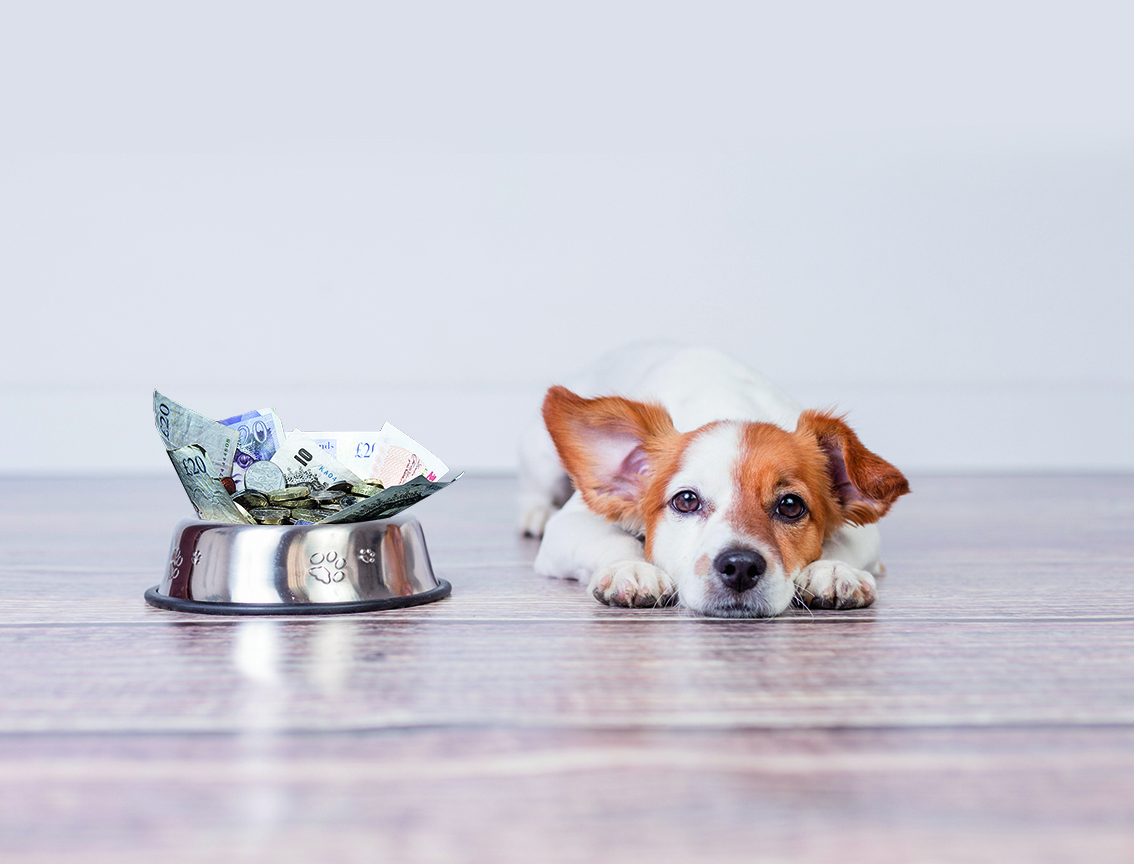How much is that doggy?
With the ever-rising cost of living, national pet charity Blue Cross has got some top tips on what you can do to keep your pet healthy and happy on a budget

A high price tag doesn’t mean you’re getting the best food for your pup. As long as the dog food is complete, your pet will have everything they need. We’d advise buying food in bulk. Though it may cost more upfront, it can work out a lot cheaper than buying as and when needed. Remember, your dog should also have access to a bowl of fresh water every day.
Watch their weight
Feed your dog the recommended amount of feed for your pet’s size, along with good-quality regular exercise, as obesity can put your pet at higher risk of developing costly conditions such as diabetes, heart disease and arthritis.
Time for treats
Pet owners love giving dogs titbits and treats, and they’re very useful if you’re training your pet but, otherwise, they aren’t necessary as part of their daily diet so can be cut out when you’re on a budget.
Healthy exercise
Exercising your dog is important for their physical and mental health and will lead to them living a longer, healthier life with fewer vet visits. It’s important that your dog gets to go out every day, with an outlet for their curious minds, too. There are also lots of games you can play with your dog for free, such as find it, and fun things you can make out of household items such as destruction boxes to keep your pet mentally and physically fit. If you have a growing puppy, don’t exercise them too much. While they are growing, their bones are more vulnerable to long-term damage. Starting your puppy off on the right paw and slowly increasing the amount of time they spend exercising could save you money on vet bills later in life.
Vaccinations and neutering
Vaccinations and health checks are the best way to protect your pet and save on vet bills. Neutering avoids accidental litters and lowers the risk of certain diseases that can be costly to treat.
Vet bills
Do your research when choosing a vet as prices can vary. In a real emergency, ask your vet if they offer a payment plan to help you with treatment bills. Some vets also offer pet clubs, which work by charging a small monthly fee that covers annual vaccinations, health checks and flea and worm treatments, with discounts for things like neutering, pet food and dental treatment.
Daily checks
Give your dog a full body check every day:
- run your hand over their coat and under their fur to feel for any lumps and bumps
- check paws for any cuts or scrapes
- look for loss of fur
- check ears for discharge and odour
- check their gums and teeth for plaque build-up and inflammation
If your pet is losing weight, is stiff or slow or drinking more than usual, it’s worth contacting your vet sooner rather than later for advice.
Brushing teeth
As with most things, prevention is better than cure. To reduce the risk of a costly trip to the vet, brush your dog’s teeth daily to keep them in the best condition possible.
Pet food banks
Blue Cross is building a network of pet food banks to help owners who may be struggling with the cost of feeding their dog. Many owners have said they are cutting out meals to be able to cover the cost of caring for their pet, so Blue Cross wants to help people and their pets stay together, as it knows how important that relationship can be. The charity has pet food banks in Sheffield, Manchester, Exeter and Grimsby, with another planned for Newport, and more to come. If you need help, get in touch with your local Blue Cross centre, as it can provide support and signpost you to your nearest help point. If you would like to donate pet food or items, then do get in touch with your local Blue Cross centre or hospital.
For more details or to find your nearest Blue Cross centre or hospital, visit bluecross.org.uk

Leave a Reply
Please login or register to leave a comment.